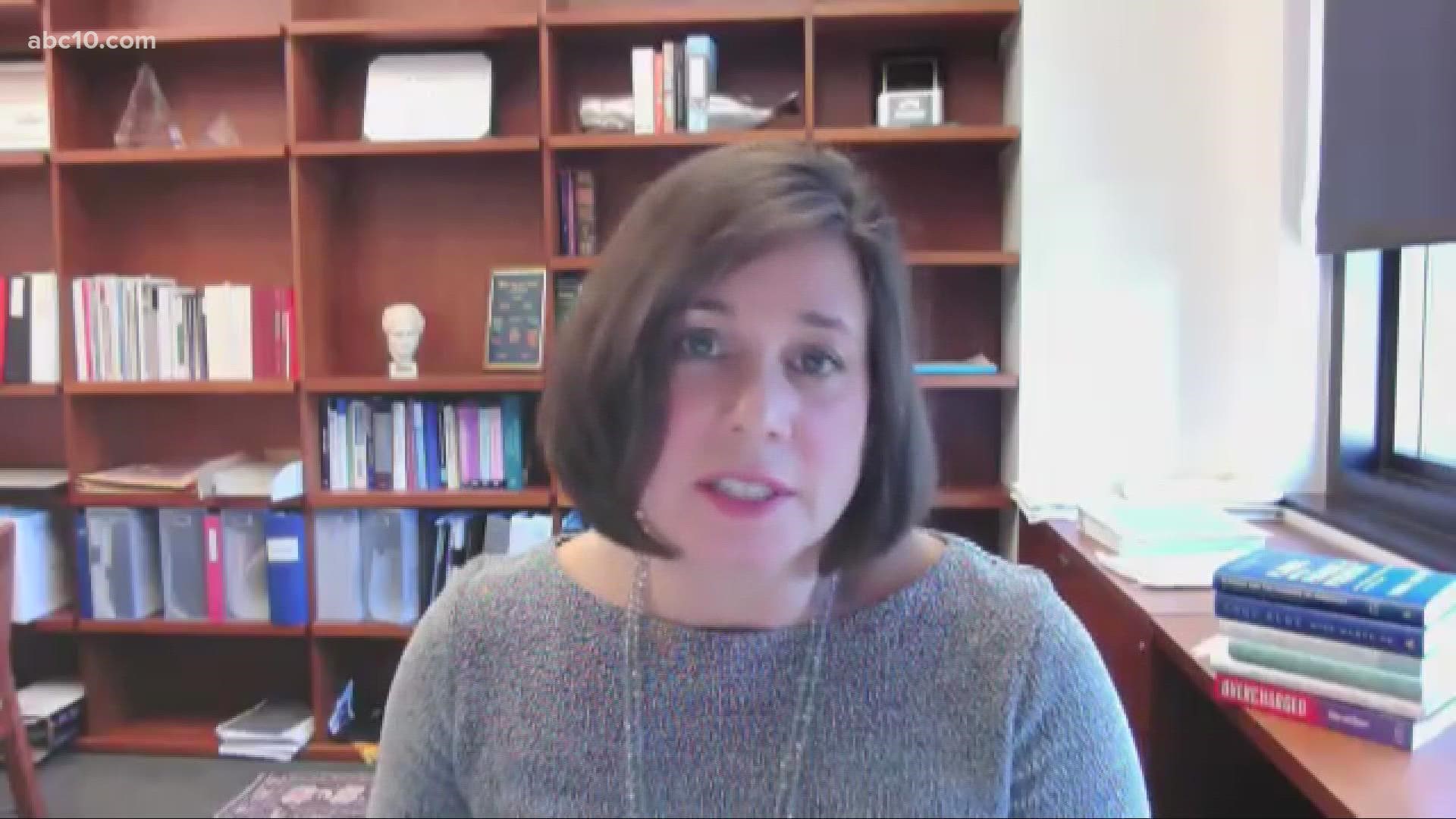STOCKTON, Calif. — As more and more employers require employees to be vaccinated against COVID-19, many workers are pushing back and citing religious beliefs against getting it.
It’s become a tug of war between those opting out of the vaccine based on a higher power belief versus an employer wanting to protect employees and the general public.
“A religious exemption is a request by an employee or other person subject to a vaccination requirement to get out of that requirement,” said Michelle Mello, Stanford University law professor and professor for the University School of Medicine.
She says, in the past, employers have granted a "fairly large berth" for religious exemptions. But with COVID, that has changed.
► Stay in the know! Get the latest vaccine updates with the Daily Blend Newsletter
"In this context, there are some distinct challenges because many of the people who are filing religious exemption requests have never refused vaccines before. This is the only vaccine they object to, and, the nature of their objection isn't truly religious. It's more of a personal belief exemption that they are trying to shoehorn into the religious exemption channel,” Mello said.
Churches like Destiny Christian Church in Rocklin believe the pastor signing their own uniquely fashioned religious exemption forms is enough to give people a vaccine pass.
“It’s on the form. All the scripture references,” Destiny Christian Church Pastor Greg Fairrington told ABC10 earlier this summer.
But, Mello says, under the law, employers are allowed to question the employee about their exemption.
"Now, that doesn't require church attendance. It doesn't require that you've tithed to a recognized denomination or that you have a letter from your clergy person. It does require that you articulate an argument that is religious in nature and not more generally about your personal beliefs,” Mello said.
There is also a portion that the Equal Employment Opportunity Commission says gives the right to an employer to deny a religious exemption for what's called "undue hardship."
That's defined as "more than a de minimis" or minimal burden or cost to run an employer's business. It could lead to an employee getting fired.
"For certain industries, there isn't a reasonable accommodation and the employee is going to be faced with a hard choice and healthcare is certainly one of those industries. Education is probably another where remote work is not really feasible, and some of the other accommodations that the employer might think about just aren't going to do the trick in terms of reassuring everyone that they can operate a safe workplace."
San Joaquin County Public Health Officer Dr. Maggie Park provided a statement to ABC10 regarding religious exemption.
"The California Department of Public Health guidelines stress religious exemptions should be based on sincerely held religious beliefs. San Joaquin County Public Health Services continues to reach out to our faith-based organizations to help answer questions about the COVD-19 vaccine and making the shots readily available to the community."
WATCH ALSO:



















